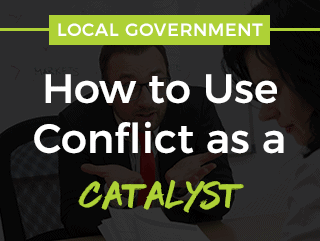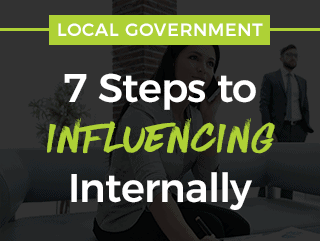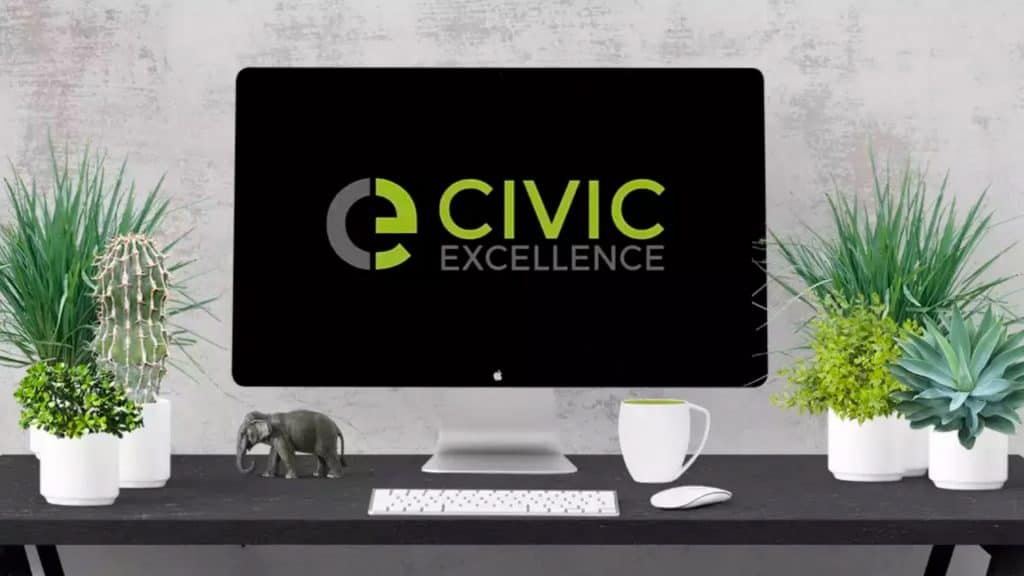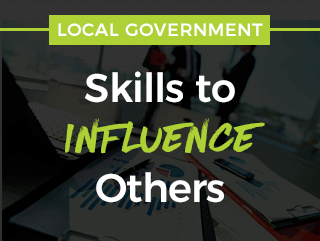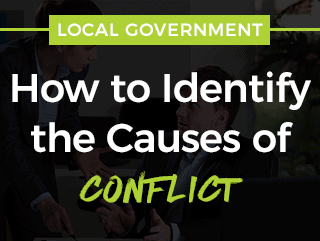Local Government Quick Tips: Having Constructive Conversations
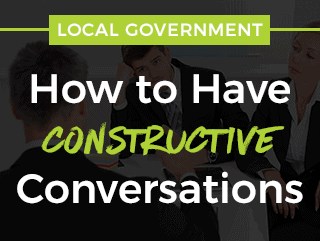
How can you have more constructive conversations?
In most local governments people have a tendency to wait until a conflict is festering and large before we actually deal with it. Ironically this is related to the fact that many local government professionals are not comfortable with conflict.
Although it may seem counterintuitive, those that are least comfortable in conflict need to develop the skills and confidence to deal with small frictions or “pinches” as they occur.
What to do with things that annoy us?
First of all, whether in an elected or staff context, we are expected to put up with things that don’t align with our personal preferences. Not everything that bugs us needs to be fixed.
A specific behaviour, although annoying, doesn’t define an entire person. When we get ‘offside’ with someone, we notice all of the things they do that fit into our (annoyed) mindset.
Decide
If we decide we can’t let it go (and I mean let it go, not store it up for another time), then we have to decide what to do about it. Are we going to speak directly to the person or do we need to get advice?
What we shouldn’t do is gossip about others.
One of my mom’s sayings (she was wise) was: “if you tell one person you’re venting but if you tell another the same story you’re gossiping”.
Three Worlds
When something occurs (at work or home) there are three different perspectives in action.
- My world- What did I see happening? What was my interpretation of that?
- Your world – What was your intention?
- The World – What is the ‘observable behaviour’?
When we label other people’s intentions, we’re guessing. Anytime we hear ‘they’re just doing that because…” the remainder is fiction, our made up version of what they intended. To have constructive conversations requires us to stop guessing and have a discussion.
Here’s a 5 step model for having “Constructive Conversations” discussion about small scale annoyances (before it becomes a ‘conflict’):
Step 1
Describe the ‘trigger’ event – what happened in THE WORLD – in completely neutral terms and tone of voice.
Step 2
Reveal what went on in YOUR WORLD when that happened – what you made up about that.
Step 3
Ask what was happening in THEIR WORLD when that happened – and trust what you hear.
Step 4
Make a request about what to do the next time that would break that pattern. “The next time X happens, let’s try…”
Step 5
Get a commitment from the other person or group and make a promise to support their commitment yourself.
An example of how this might work is if you had a colleague who was regularly coming late to meetings you might assume that they don’t respect the team, that they don’t value the meeting or that frankly, they consider themselves too important to show up on time. Those might all be possible but why start there?
What the constructive conversations model would recommend is a conversation that might go like this…
Hey Joe, I noticed that over the last couple of meetings you’ve been coming in late I wondered if something was going on, what’s up?
Joe might say the meetings are stupid. They never start on time anyways, or he might say he’s got car trouble or kid trouble Regardless of the answer, you can’t solve a problem until you know why it’s occurring.
In this case especially if you were the leader (the Mayor, Chair or Manager) you might say:
“I totally understand, but one of the things that is important to the entire team is that we all arrive on time, do you think you can arrange to do that?”
If Joe says “I can never make it to the meeting because I have another meeting until ten so I rush over here”, there’s also a reasonable discussion around a constructive conversation to look for a solution that might prevent the annoying behaviour from occurring in the future.
The benefit of constructive conversations when things are ‘small’ is that at the end of the day, regardless of Joe’s answer about why he’s late at least we’re having a discussion about the real issue instead of speculating about the wrong issue.
Remember, the less comfortable you are with conflict, the more important dealing with small ‘pinches’ is! Letting them fester and grow leaves you with a much more difficult discussion to have! Below is a worksheet to have a “Constructive Conversation” – let us know how it goes!

